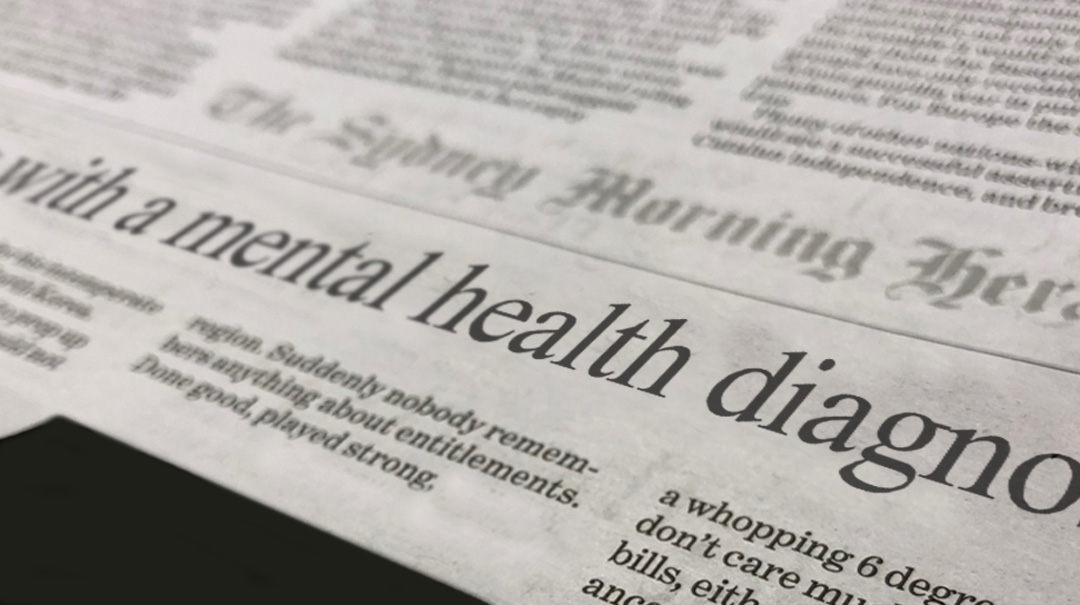Writing responsibly about mental health


One of the most significant ways of sharing experiences of mental health is through storytelling. Storytelling can be powerful and impactful, but writers of mental health have to be mindful about the language that is used. Writing about mental health also comes with a responsibility to report without perpetuating negative stereotypes or stigma. Many terms are used to describe people’s mental health, with some carrying different, and sometimes harmful, connotations.
WayAhead has internal guidelines for sharing personal stories from people with lived experiences. They were developed to ensure that these stories contribute to destigmatising mental illness, share a message of hope and recovery for others, and empower people to share their own experiences with mental health.
However, it is not uncommon to see media outlets using mental illness as a label for someone who has committed an offence, which can perpetuate a general distrust of people with mental illness. Words such as ‘sufferer’ and ‘victim’ convey a picture of someone who is not in control of their mental health. Some people prefer the terms ‘survivor’ or simply ‘someone living with mental illness’, which can help to separate an individual from their mental health.
WayAhead spoke to both Everymind and SANE Australia Media Centre, co-authors of the Mindframe for Media Professionals guide about how the media should report on a person with a mental illness.
According to the Mindframe guide, choosing accurate and respectful language is very important when reporting on someone living with mental illness as it is easy to stigmatise mental illness by using colloquial language or terminology that is confusing or used out of context.
Ellen Sproule, Senior Media and PR Advisor for SANE Australia, the national mental health charity, spoke about the fact that that there is no industry standard or guidelines about the right terms to use.
“From SANE’s end, we may occasionally use ‘consumer’ and ‘service user’ in the office. However, in all external communication to the public we say, ‘people living with mental illness’ [instead of] the terms ‘consumer’ and ‘service user’…people outside the mental health sector don’t understand these terms in this context,” explained Ms Sproule.
A consumer or service user are neutral terms that can be used describe people living with mental illness who are using certain health services, but may also alienate those who do have a lived experience of mental illness but are not currently using any services.
“In terms of terminology to use in the media for people with lived experiences of mental health issues, we recommend saying something along the lines of:
[NAME] lives with schizophrenia instead of [NAME] is a schizophrenic, which we wouldn’t recommend, as it labels a person by their illness,” recommends Ms Spoule.In addition to using appropriate terminology, it is also important to recognise that disclosure of a persons mental health may not be relevant to a story at all, even if the subject does happen to be living with mental illness. Irresponsible reporting of people’s mental health in the context of particular stories can reinforce negative and harmful stereotypes.
Marc Bryant, the Program Manager of Mindframe, has publicly spoken about the connection between violence and mental illness and how this perpetuates myths about mental illness.
“The main myths are that people who are mentally ill are violent, dangerous, untrustworthy, unpredictable when the facts that tell us many violent people have no history of mental illness and that most people who are mentally ill have no history of violence. People with a mental illness are much more likely to be victims of violence and crime than as perpetrators,” said Mr Bryant in an interview with ABC Radio National.
As the Mindframe guide recommends, it is important to consider whether mental illness is relevant to a story. The speculation around many stories which disclose or theorise about someone’s state of mind can contribute to stigma, discrimination and misinformation about mental illness. As with any story, it is vital to check that representation of people with lived experience of mental ill health is responsible, fair and accurate.
By Cindee Duong
Back to most recent edition
Newsletter
Stay up to date
Sign up to our Mind Reader newsletter for monthly mental health news, information and updates.